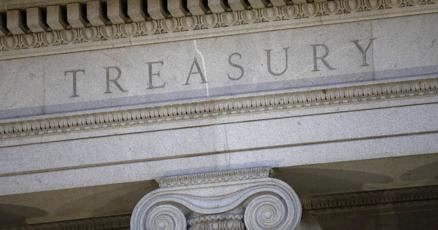
REHOBOTH BEACH, Del. – The Treasury Department has issued regulations aimed at making it harder for criminals to launder money by paying cash for residential real estate.
Under rules finalized Aug. 28, investment advisers and real estate professionals will be required to report cash sales of residential real estate sold to legal entities, trusts and shell companies.
The requirements won’t apply to sales to individuals or purchases involving mortgages or other forms of financing.
The new rules come as part of a Biden administration effort to combat money laundering and the movement of dirty money through the U.S. financial system. All-cash purchases of residential real estate are considered a high risk for money laundering.
The Treasury’s Financial Crimes Enforcement Network, also known as FinCEN, will administer the rules.
Money laundering in residential real estate can also drive up housing costs – and rising home prices are one of the big economic issues i n this year’s presidential campaign. A 2019 study on the impact of the crime on home values in Canada, conducted by a group of Canadian academics, found that money laundering investment in real estate pushed up housing prices in the range of 3.7 percent to 7.5 percent.
Under the new rules, the professionals involved in the sale will be required to report the names of the sellers and individuals benefiting from the transaction. They will also have to include details of the property being sold and payments involved, among other information.
Treasury Secretary Janet Yellen said the new rules address some of the nation’s biggest regulatory deficiencies.
Today’s Top Headlines
Story continues below
2 SC deaths may be linked to a national contaminated deli meat outbreak ‘Southern Charm’ stars, Share House owners finalizing touches on new Charleston tavern Clemson’s Dabo Swinney recalls Head Ball Coach’s call after opening loss Oceanside Collegiate football coach resigns 1 game into season Coroner identifies 15-year-old swimmer who washed ashore in Myrtle Beach These Myrtle Beach radio hosts were on the air for decades. They lost their jobs last week. Small Upstate town in a ‘sweet spot’ for growth driven by new NC casino resort Darius Rucker’s Riverfront Revival Festival in North Charleston releases schedule Opposition mounts against Kamala Harris ‘roast’ event with Proud Boys founder at USC campus Newport News Shipbuilding parent acquiring SC metal fabricator W International
“These steps will make it harder for criminals to exploit our strong residential real estate and investment adviser sectors,” she said in a written statement.
Ian Gary, executive director of the Fact Coalition, a nonprofit that promotes corporate transparency, called the rules “much-needed safeguards” in the fight against dirty money in the U.S.
“After years of advocacy by lawmakers, anti-money laundering experts and civil society, the era of unmitigated financial secrecy and impunity for financial criminals in the U.S. seems to finally be over,” Gary said.
Some industry representatives welcome the new rules.
Tori Syrek, a spokesperson for the National Association of Realtors, said FinCEN’s final rule is a pragmatic approach to combating money laundering and other crimes.
“Bad actors are exploiting the current vulnerabilities,” Syrek said. “FinCEN’s final rule is a pragmatic, risk-based approach to combating money laundering and these other crimes.”
The Biden administration has made increasing corporate transparency part of its overall agenda, including through creating a requirement that tens of millions of small businesses register with the government as part of an effort to prevent the criminal abuse of anonymous shell companies.
But an Alabama federal district judge ruled in March that the Treasury Department cannot require small business owners to report details on their owners and others who benefit from the business.
[Collection]postandcourier.com